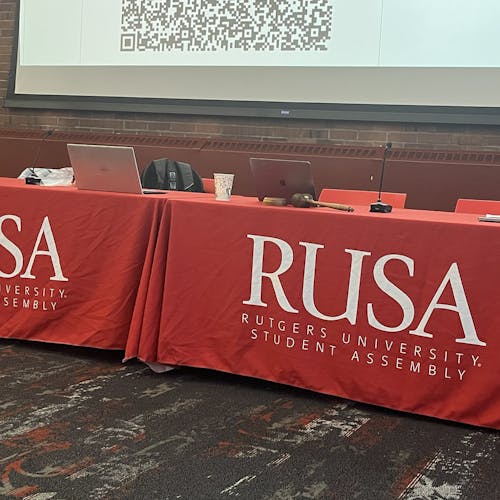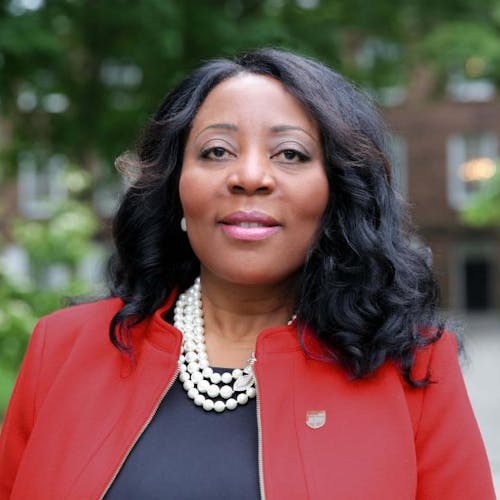Rutgers professors address climate change, geoengineering, CIA interests

One day back in January 2011, Alan Robock got a phone call from two contractors working for a consulting company hired by the CIA.
Robock, a professor in the Department of Environmental Science, said the two consultants asked him about what research was happening involving geoengineering, or the widespread manipulation of the environment to combat climate change.
One of the questions the contractors asked was if we would be aware if somebody else wanted to control our climate.
“My answer was that if somebody was trying to do it, we would know about it,” Robock said. “But we don’t know if it’s possible to actually do it.”
As it turned out, no one was trying to control the climate. Yet, the situation was no more innocuous.
In a report published two weeks ago by the National Academy of Science and funded by the CIA, global warming is very real, and the solution is to stop putting carbon dioxide and other gasses into the atmosphere, Robock said.
Part of the solution is to learn how to adapt to certain amounts of climate change that are inevitable, the report said. It said geoengineering should not be conducted at the moment because there is not enough knowledge about its benefits and risks.
The report did not call for a specific course of action to address climate change, said David Robinson, a professor in the Department of Geography.
The New Jersey state climatologist he said he sits on the board that oversees these reports.
“The report didn’t advocate any particular way of modifying the climate intentionally,” he said. “They just said these are the things that need to be explored.”
There are two types of geoengineering, Robock said. One is to create a cloud in the upper atmosphere like volcanoes do to reflect sunlight, and the other is to brighten clouds out over the ocean by having ships sail out and put particles in.
One of the areas of geoengineering Robock analyzes concerns the possibilities of reversing effects of global warming by reflecting more sunlight back to space.
Geoengineering the climate would be difficult because it not easy to determine how large the change in the earth’s atmosphere or surface would have to be, said Anthony Broccoli, chair of the Department of Environmental Sciences.
“Any attempt to geoengineer the climate would be a substantial undertaking (because) it’s not an easy thing to do, simply because of the scale of the modification,” he said.
On the contrary, Robinson said he thinks geoengineering is interesting, but hopes it is never necessitated in the future.
“To look into it, I think it’s an interesting exercise,” he said. “I certainly hope the day doesn’t come when we are faced with the necessity of attempting something intentionally.”
There needs to be more research done, which typically involve climate models and numerical models, Robock said. Small-scale tests would be interesting to calibrate whether technology works, he said.
The direction that research has taken is a good direction, Robinson said.
“There’s been a slew of different ideas, but experimenting in models with them is a lot different than going out and attempting,” he said.
There are many large nations that would have the economic capability of geoengineering the climate, Broccoli said.
He said he agrees with Robock about much less desirable it would be to counteract the effects of global warming through geoengineering than it would be to reduce the future amount of greenhouse gases that are emitted into the atmosphere.
As far as using climate change for weapon-ized reasons, Robock said he does not know if it is possible. He cited examples of people trying to modify the weather throughout history, but no evidence of it actually working.
In an article he wrote for The Guardian, Robock discussed the risks of geoengineering and the necessity to look into it further. He calls for a need to quickly move to a carbon-free energy system.
It is important for students to understand how human activities are affecting the climate, Broccoli said.
Although he said he is not sure if deliberate attempts to influence the climate will ever happen, Broccoli said he is sure climate change is a result of greenhouse gas emissions.
“We are sure, that climate change is happening as a result of the greenhouse gases that we’re putting into the atmosphere,” Broccoli said.
Climate change cannot be ignored because it affects all individuals, Robock said.
“Climate change is an important issue — it’s going to be with you for your entire life,” he said.



